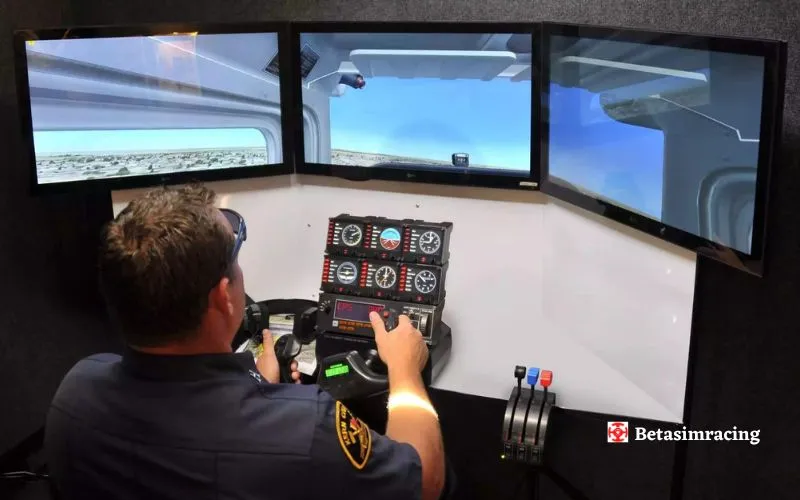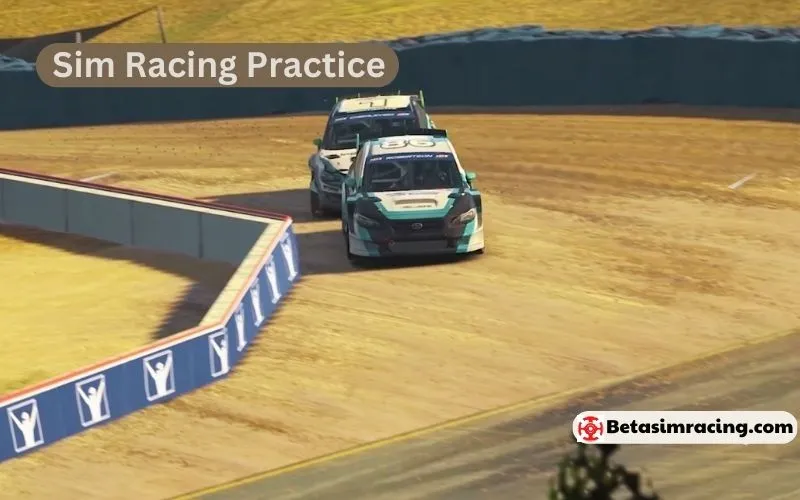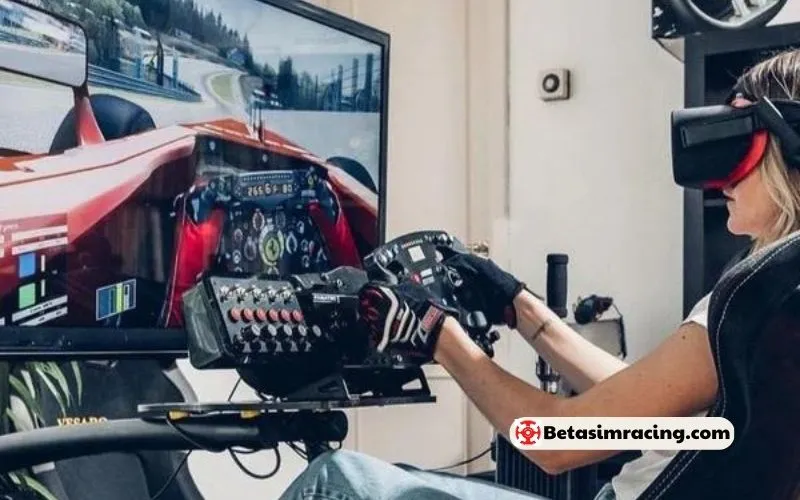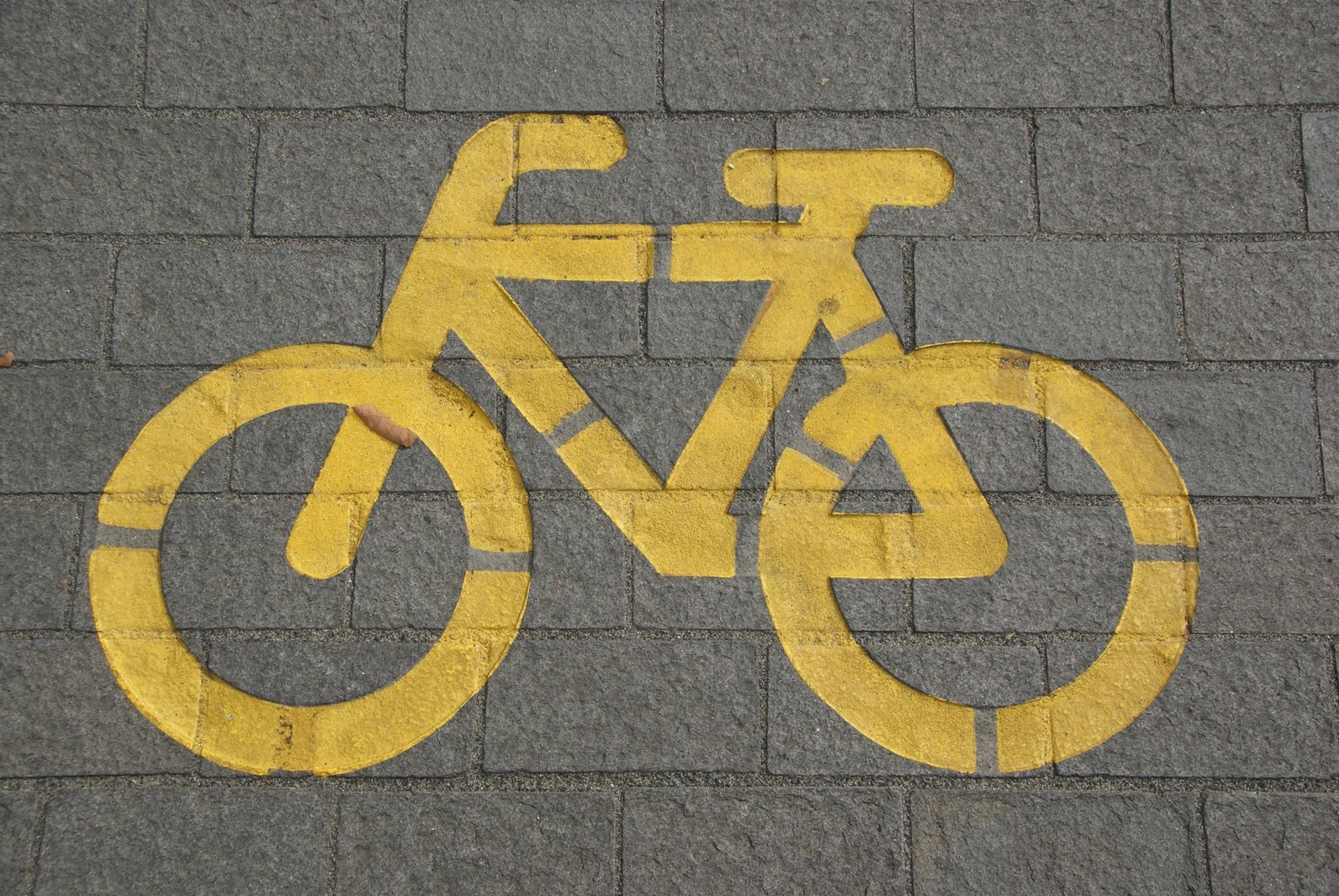Sim racing is a form of video game racing that simulates real-world racing on virtual tracks. It allows players to race against each other online or offline using realistic racing simulators and controllers. Sim racing is a popular hobby among racing enthusiasts and has become increasingly popular in recent years. Let’s learn how to get faster in Sim Racing.
How to Get Better at Sim Racing?
Gamers want to get better at sim racing for a variety of reasons. It is a way to compete with other players and test their skills. They can improve their reflexes, decision-making abilities, and hand-eye coordination.
Additionally, sim racing can be a fun and challenging hobby that provides a sense of accomplishment as players improve their performance over time. Becoming a better sim racer takes time and practice. Stay dedicated to your training, focus on consistency, and seek feedback and advice from other racers to help you improve.

- To become a better sim racer, having a strong foundation in racing is important.
- Spend time practicing these skills until you feel comfortable with them.
- You need to aim to drive smooth and consistent laps rather than trying to set the fastest lap time possible.
- Practicing with different vehicles will help you develop a wider range of skills and become more adaptable to different situations.
- Several software tools are available for sim racers, such as telemetry software and data loggers, that can help you analyze your performance and identify areas for improvement. You can take benefits of them.
- Most importantly, joining a sim racing community can be a great way to get feedback and advice from other racers and participate in organized competitions.
How to Practice Sim Racing?
As I have discussed, sim racing is a skill that needs time and practice to develop. With dedication and consistency, you can become a skilled sim racer and compete at a high level.

Follow these tips and see how to practice sim racing effectively:
- Start with the Basics: Before practicing, ensure you understand the basics of sim racing, such as accelerating, braking, and turning. Take some time to be adaptable to the controls and settings of the game, and start with easier tracks and vehicles to build your skills.
- Set Goals: It’s important to remember specific goals when practicing sim racing. This can be anything from mastering a particular track to improving your lap times. Set achievable goals and track your progress over time to stay motivated.
- Practice Regularly: Consistency is a tool for practicing sim racing. Try to practice for at least a few hours each week, and stick to a regular schedule if possible. This will assist you build muscle memory and improve your skills quickly.
- Use Different Vehicles and Tracks: To become a well-rounded sim racer, practicing with different vehicles and tracks is important. This will help you develop a wider range of skills and become more adaptable to different situations.
- Analyze Your Performance: After each practice session, take some time to review your performance and identify areas where you can improve. This could involve watching replays of your races, analyzing your lap times, or getting feedback from other sim racers.
- Join a Community: Joining a sim racing community can be a great way to get feedback and advice from other racers and participate in organized competitions. Look for online forums, Discord groups, or local racing clubs to get involved with.
How Long Does It Take to Get Good at Sim Racing?
The time it takes to get good at sim racing can vary depending on several factors, such as your level of dedication, natural ability, experience with video games, and the amount of time you can commit to practicing.

Generally speaking, it takes several months to a few years of regular practice and competition to become proficient in sim racing. Like any other skill, consistency and deliberate practice are key to improving your performance. You must develop a deep understanding of the game mechanics, learn to navigate different tracks, and hone your reflexes and decision-making abilities.
There are several reasons someone may feel slow in sim racing, including lack of practice, improper technique, lack of knowledge about the game, or inadequate equipment.
Sim racing can be mentally and physically tiring, especially during long races or intense competition.
The longest track in sim racing is the Nordschleife, also known as the Nürburgring, a 20.8 km (12.9 miles) long track in Germany.
Yes, sim racing can be good for your brain as it can improve hand-eye coordination, spatial awareness, and reaction time. It also requires cognitive skills such as decision-making, problem-solving, and multitasking.
Getting faster in sim racing requires dedication, practice, and a willingness to analyze and improve performance. By mastering the basics, focusing on consistency, practicing with different vehicles and tracks, using sim racing software, and seeking feedback from other racers, sim racers can continue to improve their skills and compete at a higher level.
Conclusion

